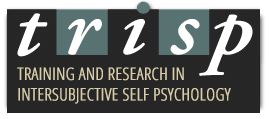About TRISP
The Training and Research in Intersubjective Self Psychology Foundation – TRISP – is dedicated to providing intensive training to clinicians as well as educational programs to the public-at-large. TRISP is composed of a network of licensed clinicians who provide moderate cost psychotherapy and supervision from a contemporary self psychological and intersubjective perspective. In addition, TRISP is a membership organization which brings together interested parties for collegial dialogue and support, and offers an online forum for the exchange of ideas on intersubjective self psychology.
Founded in 1987 as a not-for-profit educational corporation, TRISP was the first Self Psychological training institute in the country. Its tradition of fostering intellectual vitality in an empathic setting is built upon a theoretical foundation that comprises Self Psychology and Intersubjectivity Theory.
About Intersubjective Self Psychology
Psychoanalytic self psychology as formulated by Heinz Kohut (1913-1981) is based on three core ideas. The first involves a radical innovation in the history of psychoanalysis: Kohut placed the person’s self experience at the center of psychoanalytic inquiry, thereby dislodging such out-dated concepts as drives, the ego, and object relations. According to Kohut, our sense of well being, which depends on the ability to love and to work with vitality, empathy, humor and wisdom, is determined by our sense of self. Whether or not we are able to derive a sense of pride and joy from our achievements, engage in and sustain intimate relationships, or mourn the inevitable setbacks and losses we endure during the course of our lives, are all determined by the state of the self.
The second core idea involves what has come to be called selfobject experience and pertains to how a person’s sense of self develops and is sustained. From birth on, Kohut contends, we need to feel intimately connected to others and to feel that they are reliably available to provide the emotional nutrients necessary for optimal development. The requisite needs obtainable within this selfobject milieu include:
- validation and affirmation of our emerging expansive selves, the gleam in the parent’s eyes as the child displays his or her achievements;
- experiences of merger with the strength and calmness of idealizable figures; and
- experiences of essential alikeness with other fellow human beings.
Selfobject needs, according to Kohut, are never outgrown. Early in development they must be met by our primary caregivers. Increasingly, over time, we turn to siblings, friends, teachers, mentors, spouses, children, and yes, our analysts, for their fulfillment. What we need from others, and how we need others to be responsive to us, change over the life span. Some self psychologists refer to this developmental progression as a movement from “archaic” selfobject experience to more mature forms of selfobject experience.
The third core idea involves the centrality of empathy in psychoanalytic treatment. Defined by Kohut as “vicarious introspection,” empathy involves the analyst’s attempt to understand the patient from within his/her own emotional world. With the recognition that what determines human experience and conduct is psychic reality, self-psychological inquiry is always undertaken from a perspective within the self experience of the patient.
When we experience our selfobject milieu as failing to meet our central needs, often because of failures in empathic understanding, we are likely to develop a sense of self that lacks cohesion, temporal stability and/or positive affective valence. We may feel alienated from ourselves, unsure of who we are and unable to take action on our own behalf. We are also likely to feel depressed, devoid of vitality, energy, direction and a sense of purpose. Our intimate relationships and working lives suffer and we are unlikely to derive satisfaction from them.
This, then, becomes the focus of self-psychologically oriented psychoanalytic treatment: to create, in the analytic relationship, a facilitating environment in which the restoration and further development of self experience might occur. Employing empathy and introspection, the analyst also addresses and with the patient works through the character structures, symptom formations and faulty adaptations that developed in the absence of an adequate selfobject milieu.
Patients in self-psychologically oriented treatment often experience an improved sense of well-being and vitality very quickly. Not only are they likely to feel that their central selfobject needs have been understood and adequately responded to, but that misunderstandings that periodically disrupt the analytic relationship have been addressed. As such disruptions are empathically explored, their meanings are interpreted both with respect to the patients’ dread of re-experiencing past traumas and in terms of their present experiences with their analysts. As a consequence of the repeated engagement in this rupture and repair sequence, the patient’s self development is advanced, and he or she is able to lead a rich, productive, satisfying life.

 Find Us on Facebook
Find Us on Facebook